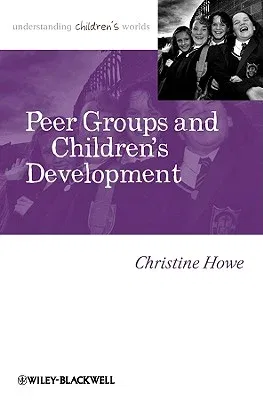Christine Howe
(Author)Peer Groups and Children's DevelopmentPaperback, 1 February 2010

Qty
1
Turbo
Ships in 2 - 3 days
In Stock
Free Delivery
Cash on Delivery
15 Days
Free Returns
Secure Checkout

Part of Series
Understanding Children's Worlds
Print Length
248 pages
Language
English
Publisher
Wiley-Blackwell
Date Published
1 Feb 2010
ISBN-10
1405179449
ISBN-13
9781405179447
Description
Product Details
Author:
Book Format:
Paperback
Country of Origin:
GB
Date Published:
1 February 2010
Dimensions:
22.61 x
14.99 x
1.52 cm
ISBN-10:
1405179449
ISBN-13:
9781405179447
Language:
English
Location:
Chichester, England
Pages:
248
Publisher:
Weight:
358.34 gm